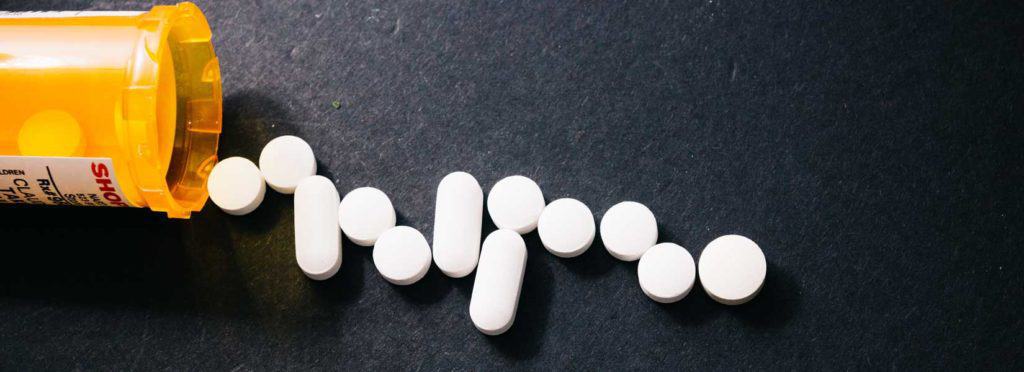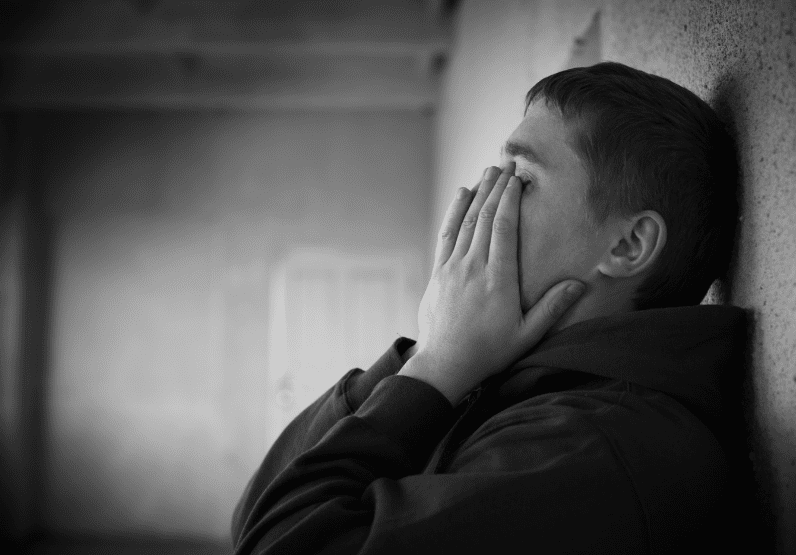Oxycodone is frequently prescribed for severe pain, especially as a result of trauma such as a car accident or other injury. It may also be prescribed for chronic pain. Unfortunately, even when this medication is taken as prescribed, it can lead to dependence and addiction. While some may be able to take this medication long-term for chronic pain, it’s still very difficult to stop taking it after even a short period of time.
Oxycodone is easy to become addicted to for a few reasons. First of all, people’s tolerance to the medication goes up fast, requiring larger and larger doses after a short period of time. And second, this medication not only helps to counteract pain but gives patients a euphoric feeling. Even after their pain has subsided, they may feel the need to keep taking the medication in order to continuously achieve euphoria. Third, it can be difficult to stop, with many patients experiencing withdrawal symptoms when not tapered off correctly.
The Opioid Crisis
To understand how Oxycodone use can lead to heroin addiction, it’s important to understand the opioid crisis and how it’s taken over the United States for the last several decades. The opioid epidemic began in the late 1990s when pharmaceutical companies reassured doctors, patients, and the general medical community that opioids like Oxycodone weren’t addictive. Because of this, doctors began to prescribe these drugs at a greater rate. They thought opioids were great because of their high efficacy and “low” risk of addiction. However, in the beginning, they didn’t know that pharmaceutical companies were lying right to their faces.
The opioid crisis increased the use of prescription drugs as followed and abused, leading the public to finally understand that these drugs are highly addictive. In 2017, the opioid crisis was deemed a public health emergency, and the HHS took action to stop it with a five-point strategy.
Let’s look at the impact of the opioid crisis. Here are a few statistics from 2020:
- In 2019, just over 70,000 people died from a drug overdose
- 10.1 million people misused prescription opioids
- 50,000 people used heroin for the first time
- 1.6 million people misused prescription pain relievers for the first time
- 1.6 million people had an opioid use disorder
- There were 14,480 deaths from overdosing on heroin
Seeking Prescriptions for Medical Crisis
Many people who become addicted to heroin do so by accident. It all starts with a prescription for pain killers. Of course, this is only true for some and is only one way that addiction to heroin begins. Those who take opioids for pain relief, whether it’s for trauma, injury, or chronic illness, are at a high risk of developing a dependence on the drug. Opioids can be taken safely under the guidance of a good doctor, who knows the risks and wants to help prevent addiction.
For example, these doctors will only prescribe for a short time and help wean patients off when the time is right. Neglectful doctors are the real problem, dolling out high doses, cutting prescriptions without warning, or just filling on end even when the patient doesn’t need the dose anymore. All of these neglectful actions can put a patient at higher risk for addiction, and a higher risk of developing an addiction to other opioids like heroin.
When the Prescription Runs Out
When a doctor decides to stop prescribing Oxycodone without helping the patient wean off their dose properly, the patient can experience severe withdrawal symptoms that can make it difficult to go about their everyday lives. Because of this, they may turn to alternative methods as a way to quelch their cravings.
For example, some users might start drinking or looking for opioids that they can purchase from a friend or dealer. They may feel like they don’t have any choice and that they need to continue using them in order to feel like a successful, capable human being.
Street Drugs and Heroin
After purchasing Oxycodone from friends or using other legal prescriptions sold on the street (therefore, using illegal drugs), users might find themselves deeper than they thought. Their local dealer might start offering other drugs, like heroin or even fentanyl. Drug dealers can be convincing, letting people know that the high is better or that they’ll help manage pain more effectively than other drugs. After that, it just becomes chasing a better, higher high, and eventually, that can lead to the use of heroin, whether they’re taking it by the pill or intravenously.
Unfortunately, this story is all too common in the United States. People start taking opioids because they’re told they need them to manage pain, and then all of sudden they’re buying opioids from friends and not realizing that they have an addiction.
Warning Signs of Heroin Addiction
If you’re concerned that a loved one in your life is struggling with heroin addiction (or addiction to any type of opioid), there are a few warning signs that you should keep an eye out for. For example, if you notice that your loved one is slacking at work or in school when they used to be a perfect employee or student, this might be enough to talk to them about what’s going on. Other warning signs include:
- Increased depression, anxiety, or insomnia
- Lying to family or friends
- Sudden changes in appetite
- Sudden changes in behavior or attitude
- Poor hygiene
- Tremors or shakiness
- Bloodshot eyes
- Sweating or flu-like symptoms
- Irritability or anger
Seek Treatment for Oxycodone or Heroin Addiction ASAP
If you or someone you love has developed an addiction to oxycodone, heroin, or any other opioids, it’s time to seek help. Our treatment facility offers a variety of different treatment programs, including inpatient, outpatient, detoxification, and more. To learn more about our programs and how they can help you or a loved one get and stay sober, call us today. We’re eager to answer any questions you may have.








